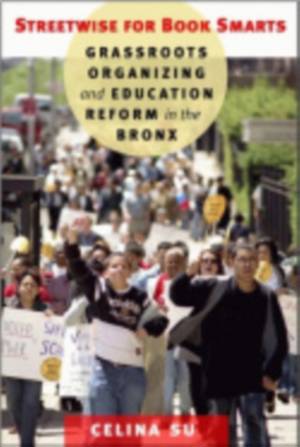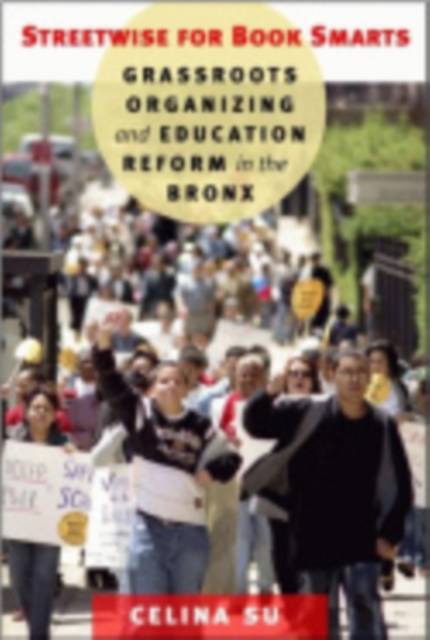
- Retrait gratuit dans votre magasin Club
- 7.000.000 titres dans notre catalogue
- Payer en toute sécurité
- Toujours un magasin près de chez vous
- Retrait gratuit dans votre magasin Club
- 7.000.0000 titres dans notre catalogue
- Payer en toute sécurité
- Toujours un magasin près de chez vous
Streetwise for Book Smarts
Grassroots Organizing and Education Reform in the Bronx
Celina SuDescription
In Streetwise for Book Smarts, Celina Su examines the efforts of parents and students who sought to improve the quality of education in their local schools by working with grassroots organizations and taking matters into their own hands. In these organizations, everyday citizens pursued not only education reform but also democratic accountability and community empowerment. These groups had similar resources and operated in the same political context, yet their strategies and tactics were very different: while some focused on increasing state and city aid to their schools, others tried to change the way the schools themselves operated. Some coalitions sought accommodation with administrators and legislators; others did not.The events Su describes began with a series of stabbings in Bronx high schools during the 2003-2004 school year. After this rash of violence, several grassroots groups cited the need for additional safety patrols. Mothers from one school spoke of how they had previously protested until they got extra officers, a fairly scarce resource in New York public schools, at their local elementary school. Others asserted that not all the safety patrol officers already in place were treating students humanely. Parent organizations and school officials battled over who was to blame for the school violence. Did a police presence solve the problem, or did it exacerbate the schools' violence-prone conditions? Members of different groups proposed and mobilized behind a range of remedies. These divergent responses shed light on the ways in which the choices made by each organization mattered.By learning from Su's close observation of four activist groups in the Bronx, including Mothers on the Move and Sistas and Brothas United, we can better understand strategies that may ultimately lead to better and safer schools everywhere and help to revitalize American democracy.
Spécifications
Parties prenantes
- Auteur(s) :
- Editeur:
Contenu
- Nombre de pages :
- 264
- Langue:
- Anglais
Caractéristiques
- EAN:
- 9780801475580
- Date de parution :
- 20-05-09
- Format:
- Livre broché
- Format numérique:
- Trade paperback (VS)
- Dimensions :
- 150 mm x 226 mm
- Poids :
- 362 g

Les avis
Nous publions uniquement les avis qui respectent les conditions requises. Consultez nos conditions pour les avis.






